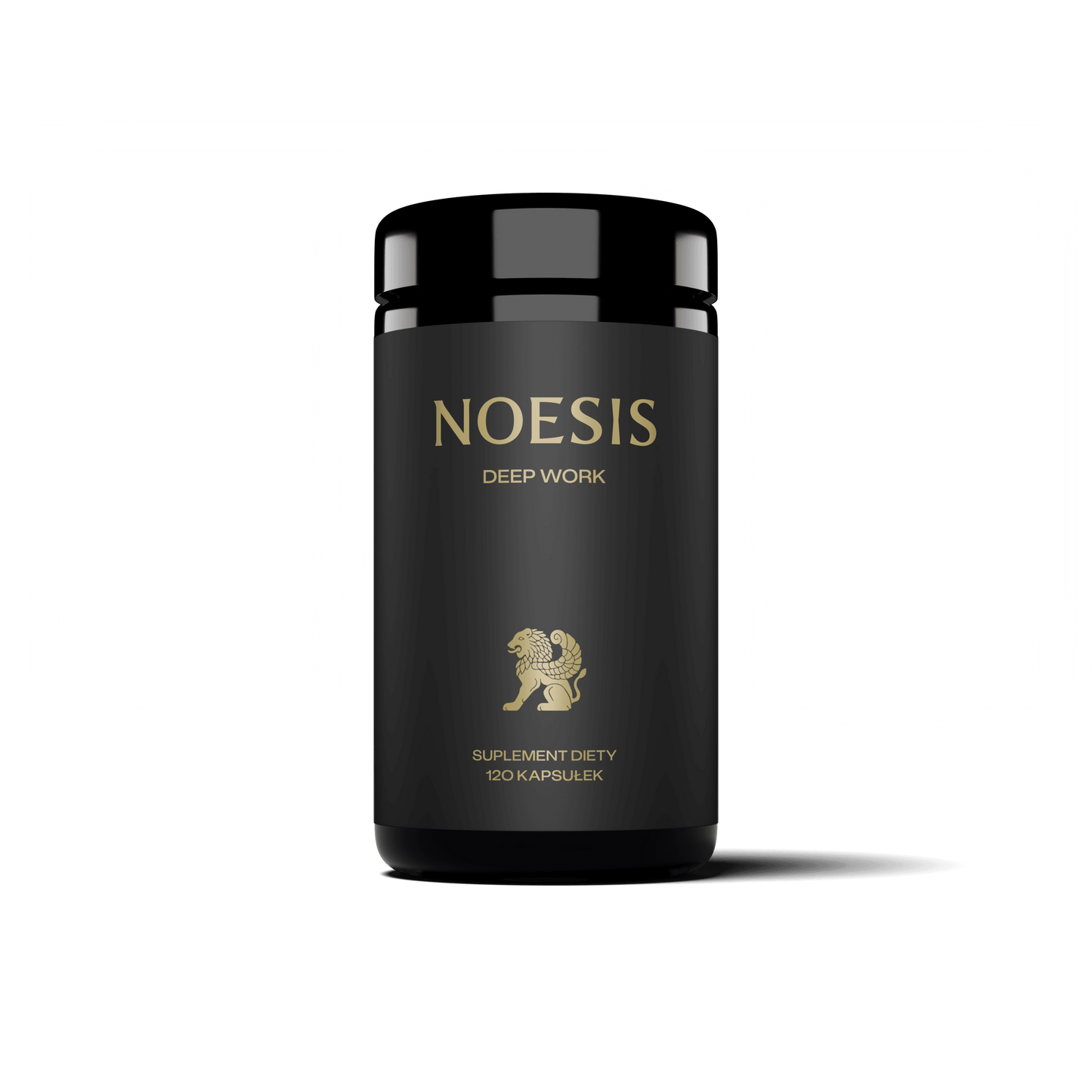
Constant fatigue, sleepiness and lack of energy are commonplace for many people today. Do you wake up in the morning and feel like you have no energy? Do you struggle with drooping eyelids during the day, and every activity seems like an effort beyond measure? You are not alone. The pace of life, stress, lack of sleep and unhealthy habits mean that fatigue is no longer a temporary state, but a disconnected element of your life.
The problem begins when we ignore the signals sent by the body. This is no longer just “tired after work” or sleepiness after a sleepless night. If you constantly feel tired and lack energy every day, it’s time to stop ignoring it. This condition can be a symptom of more serious health problems, from sleep disorders, through deficiencies, to chronic diseases.
Constant tiredness and sleepiness, lack of energy – the problem of our times
Just a dozen or so years ago, fatigue was associated with the effects of hard physical work or a sleepless night. Today , constant fatigue and sleepiness, lack of energy affect people regardless of how much they actually “do”. This is a sign of our times – life in a constant rush, overstimulation and lack of balance between duties and regeneration.
Why fatigue has become an everyday occurrence
Fatigue has ceased to be a temporary state, but has become the background of everyday functioning. Why? The reason is simple. Most people live in a mode that does not give the body a chance to truly rest. An improper diet, lack of exercise, constant contact with screens, an excess of information and the pressure to be "non-stop" available cause the body to constantly work on reserves.
In addition, there is a lack of sleep or poor quality of it. Even if we sleep 7-8 hours, it is often interrupted, shallow and insufficient for full regeneration. As a result, we wake up more tired than when we fell asleep.
The impact of lifestyle and long-term stress
Another silent killer of energy is long-term stress . Daily rush, tension related to work, personal life or finances lead to chronically increased cortisol levels. And an excess of this hormone not only causes mental fatigue , but also affects the functioning of the entire body.
Add to that the lack of physical activity , which weakens blood circulation and reduces oxygenation of the body, and you have the perfect recipe for constant fatigue . The lifestyle of most people is simply not conducive to maintaining high energy levels. Instead, it leads to a vicious cycle. The less energy you have, the less movement and worse your well-being.
Constant fatigue is not a result of “weakness”. It is a result of modern habits that work against us. That is why it is so important to understand the mechanisms behind this condition and start acting consciously.

Constant fatigue – when should you worry?
We all have days when we lack energy. However, constant fatigue that doesn't go away despite rest is a signal that something is wrong.
Persistent fatigue vs. natural weakness
Natural weakness occurs after intense exertion, lack of sleep or a stressful period. A few days of regeneration are enough to get back in shape. Persistent fatigue is a condition that lasts for weeks or even months, regardless of the amount of sleep or a slower pace of life. If you wake up tired in the morning and everyday activities become a challenge, it is no longer "ordinary fatigue".
Symptoms that cannot be ignored
Disturbing signals include : constant tiredness , lack of motivation to act, problems with concentration, headaches , irritability, decreased immunity, as well as sleep or appetite disorders. If you notice such symptoms, do not ignore them, because they may be related to more serious health problems.

Chronic Fatigue Syndrome – What Is It Really?
Not all fatigue is a matter of lack of sleep or overwork. Sometimes the problem goes deeper and has a name – chronic fatigue syndrome (CFS) .
Chronic fatigue syndrome is a serious condition that manifests itself with extreme, unexplained fatigue lasting more than 6 months. It does not subside after rest and significantly impedes everyday functioning . Diagnosis is not simple - other chronic diseases , sleep disorders , deficiencies or mental problems are excluded.
The key difference? Chronic fatigue is constant, independent of lifestyle, sleep or diet. It is often accompanied by muscle pain, muscle weakness , memory and concentration problems ( "brain fog" ), and even anxiety disorders . If rest does not change anything and fatigue paralyzes your activity, it is time to consult a doctor.
Excessive sleepiness and constant feeling of tiredness – causes
Fatigue doesn't come out of nowhere. It often results from simple but ignored factors that sap your energy day after day.
Sleep deprivation and sleep disorders
The most common cause is simply a lack of sleep or poor quality . Even if you “sleep 7 hours,” interrupted sleep, snoring, or apnea prevent the body from regenerating. The result? Excessive daytime sleepiness and a constant feeling of fatigue that is hard to explain.
Long-term stress, excess cortisol and mental fatigue
Another culprit is stress . When the body is in a constant state of alert, excess cortisol destroys hormonal balance. Mental fatigue , irritability and concentration problems appear. This exhaustion does not go away after a free weekend, because the source lies in an overloaded nervous system .

How to overcome fatigue?
Constant fatigue is a sign that it's time to change something. And it's not about magic solutions, but about a conscious approach to everyday habits. Small steps = big difference.
Lifestyle, sleep quality, relaxation techniques
You don't get enough sleep? You don't have the energy. Quality sleep is the foundation. Stop scrolling through your phone before bed, make sure you have regular bedtimes, and introduce relaxation techniques . A few minutes of conscious breathing in the evening can calm you down better than a TV series. Also, limit long-term stress , because it drains your energy faster than a hard workout.
The role of diet and hydration
Poor quality fuel = engine chokes. Your body works the same way. Lack of vitamins, iron deficiency , too little folic acid or dehydration are simple causes of decreased strength. Focus on regular meals, rich in nutrients and don't forget about water. Sugar will give you a "kick" for 10 minutes, and then even more tiredness.
The importance of physical activity
Movement is the best way to fight chronic fatigue . You don't have to sign up for a marathon right away. A daily walk, light exercise or yoga is enough. Oxygen gives you energy , improves blood circulation and supports the natural production of endorphins, which improve well-being .
Simple changes to feel better
Don't make it complicated. Get up from your desk every hour, breathe consciously, swap the elevator for the stairs, drink a glass of water instead of another coffee. These little things accumulate and start working faster than you think. Fatigue is often the result of bad habits, and you can change them step by step.
What tests should be performed for constant fatigue?
If, despite lifestyle changes, you still feel tired and sleepy all the time , it's time to check what's going on "from the inside." The basis is blood tests , which can indicate the most common causes of the problem.
Basic blood tests, iron, glucose and hormone levels
Start with a blood count, checking iron levels , glucose and thyroid hormones . These are often the reasons for weakness , headaches or memory problems . It is also worth checking folic acid and vitamin levels, because their deficiencies effectively lower energy levels .
When should you see a family doctor?
If you notice symptoms such as excessive sleepiness , poor physical condition , frequent joint pain or chronic problems with concentration, do not wait. Your family doctor will help you choose the right tests and check whether your fatigue is not caused by chronic diseases , such as hypothyroidism , chronic kidney disease or anxiety disorders .
Summary – fatigue is a signal, not a sentence
Constant fatigue and sleepiness , lack of energy, problems with concentration do not have to be Your "new normal". The body sends signals that should not be ignored. Regardless of whether the cause is lifestyle , stress, deficiencies or hidden health problems - you can always take the first step.
Make small changes: take care of your sleep , movement, breathing, diet and regeneration. If necessary – do tests and consult a doctor. Remember that even on the most demanding days you can support yourself with wise supplementation to regain control over your energy and daily functioning.
Fatigue is not a sentence. It's information. And now you know how to use it.







